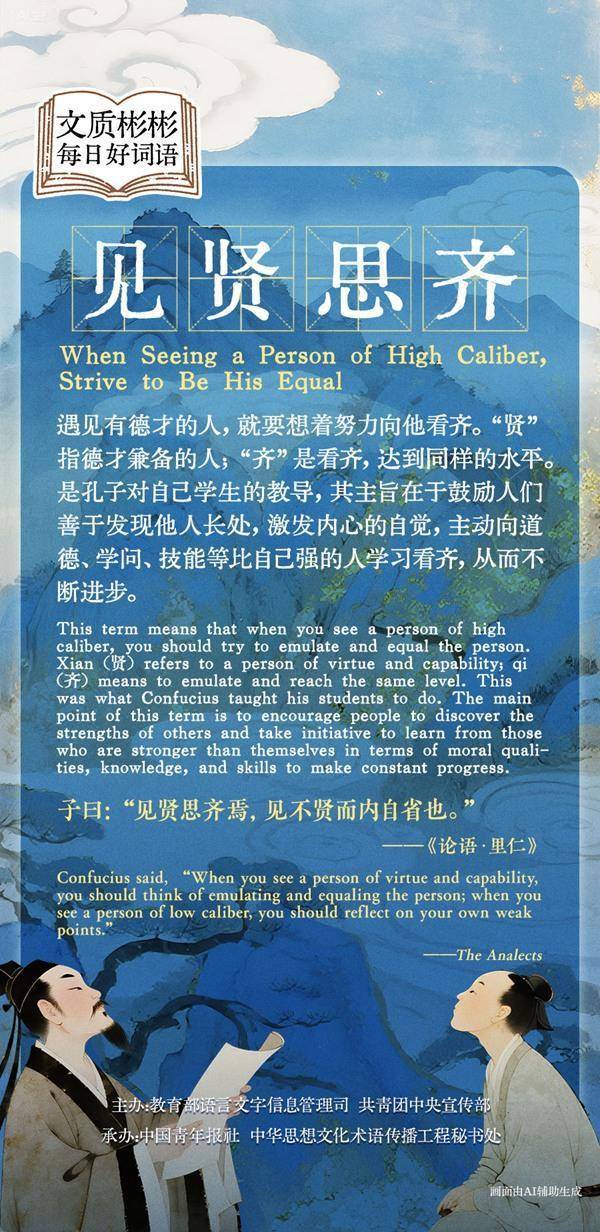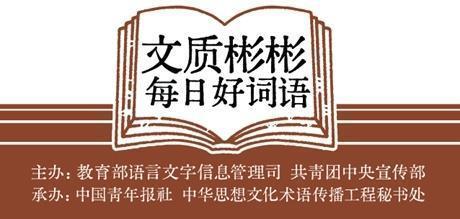发布日期:2025-08-04 07:32 点击次数:84

 开yun体育网
开yun体育网
见贤想皆
碰见有德才的东说念主,就要想着戮力向他看皆。“贤”指才德兼备的东说念主;“皆”是看皆,达到相似的水平。“见贤想皆”是孔子对我方学生的教导,后成为众东说念主修身养德、增进智力的座右铭。其主旨在于饱读动东说念主们善于发现他东说念主所长,引发内心的自愿,主动向说念德、常识、手段等比我方强的东说念主学习看皆,从而不绝提高。它体现了中华英才一心向善、积极跨越、自立抑遏的精神。
When Seeing a Person of High Caliber, Strive to Be His Equal.
This term means that when you see a person of high caliber, you should try to emulate and equal the person. Xian(贤)refers to a person of virtue and capability; qi(皆)means to emulate and reach the same level. This was what Confucius taught his students to do. The term has become a motto for cultivating one’s moral character and increasing one’s knowledge. The main point of this term is to encourage people to discover the strengths of others and take initiative to learn from those who are stronger than themselves in terms of moral qualities, knowledge, and skills so as to make constant progress. The term embodies the Chinese nation’s spirit for good, enterprise, and tenacious self-renewal.
引例1:子曰:“见贤想皆焉,见不贤而内内省也。”(《论语·里仁》)(孔子说:“碰见有德才的东说念主,就要想着戮力向他看皆;碰见德才不好的东说念主,就要在内心反省我方[是否有相似的污点]。”)
Confucius said,“When you see a person of virtue and capability, you should think of emulating and equaling the person; when you see a person of low caliber, you should reflect on your own weak points.”(The Analects)
引例2:正人博学而日参(cān)省乎己,则知明而行无过矣。(《荀子·劝学》)(正人平素学习况且每天坚抓自我参验、反省,就不错作念到贤达明达而当作不会有错了。)
Men of virtue, who study extensively and reflect on themselves every day, become wise and intelligent and are free from making mistakes. (Xunzi)

开端:中国后生报开yun体育网